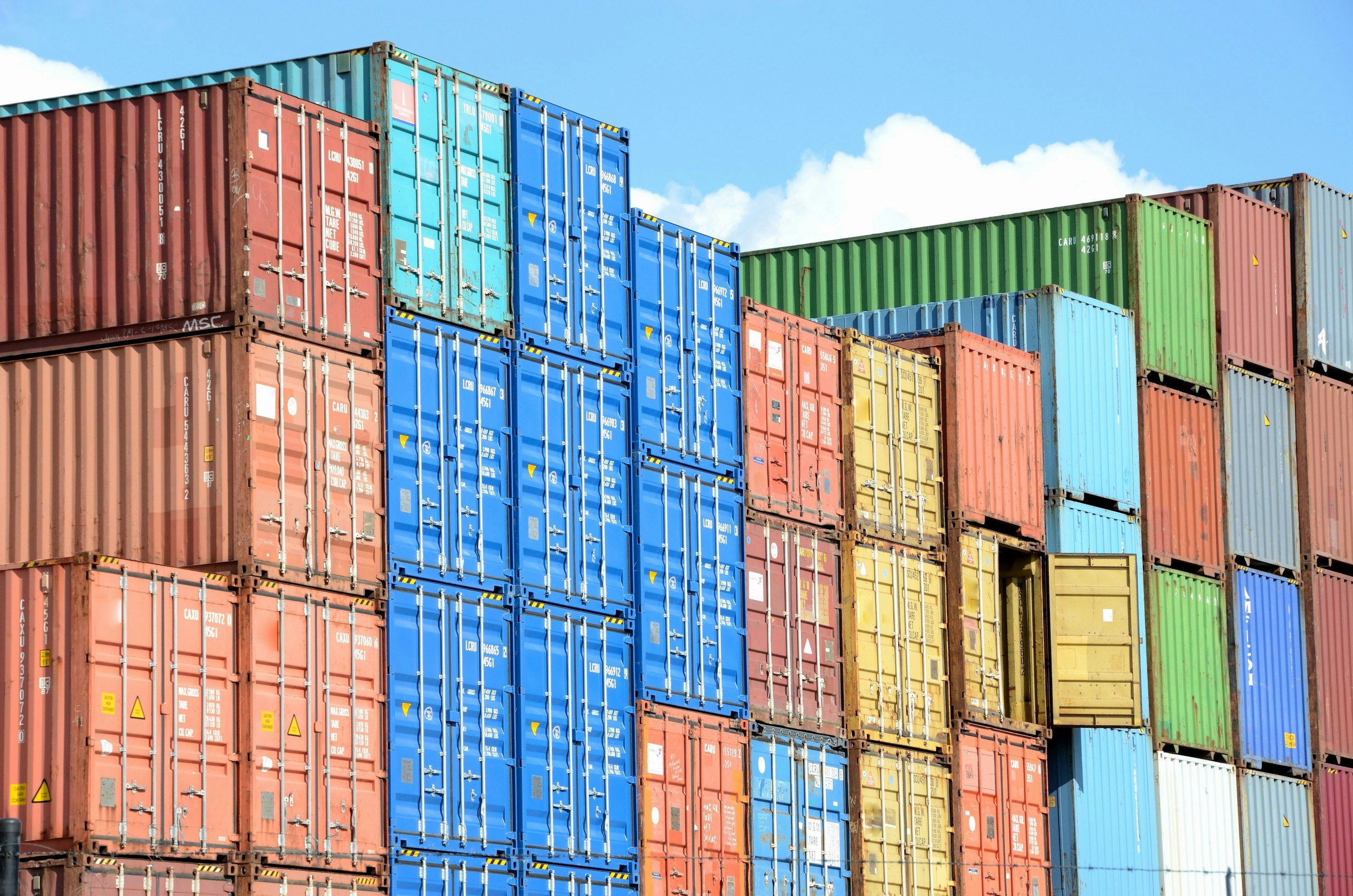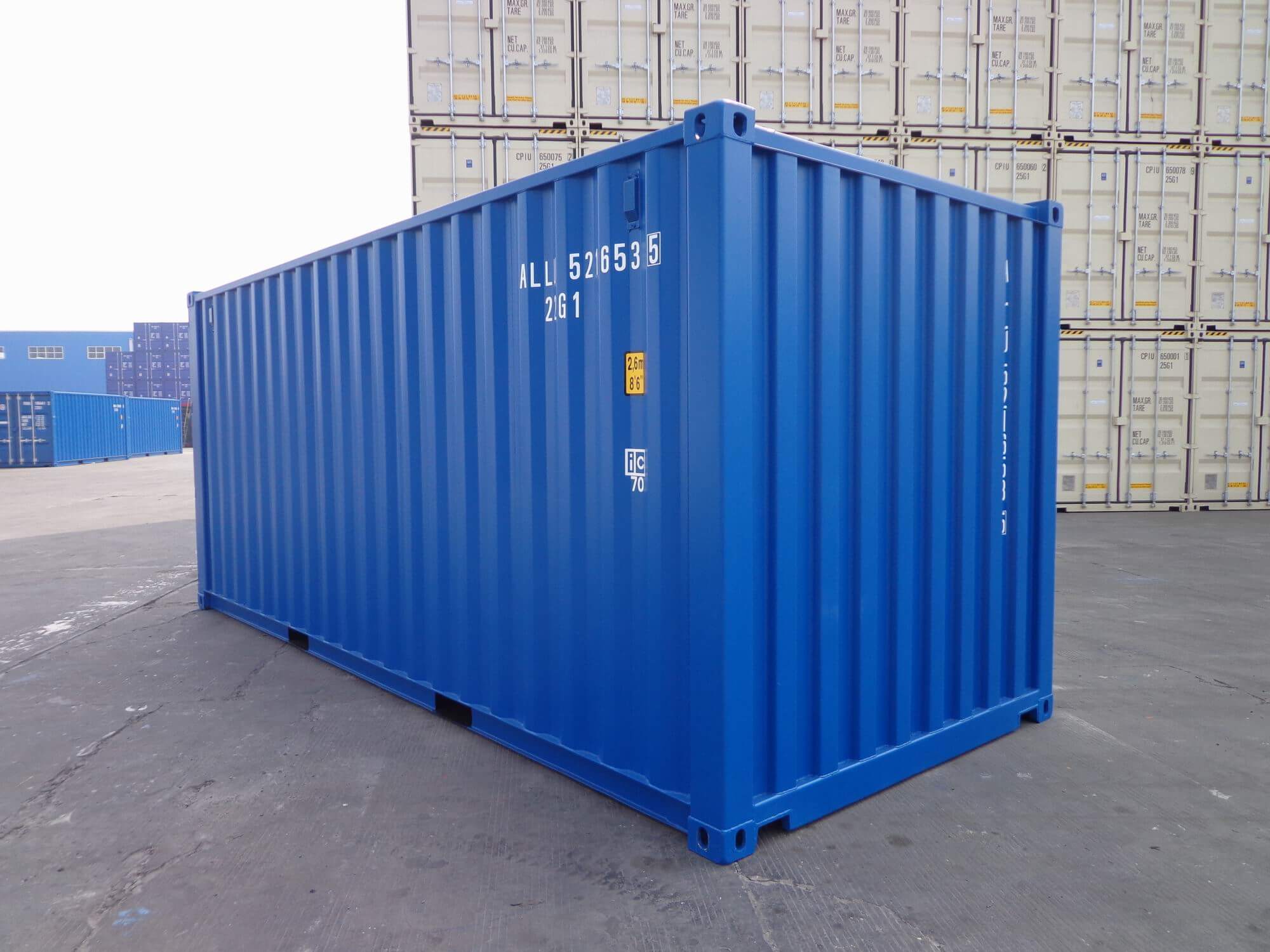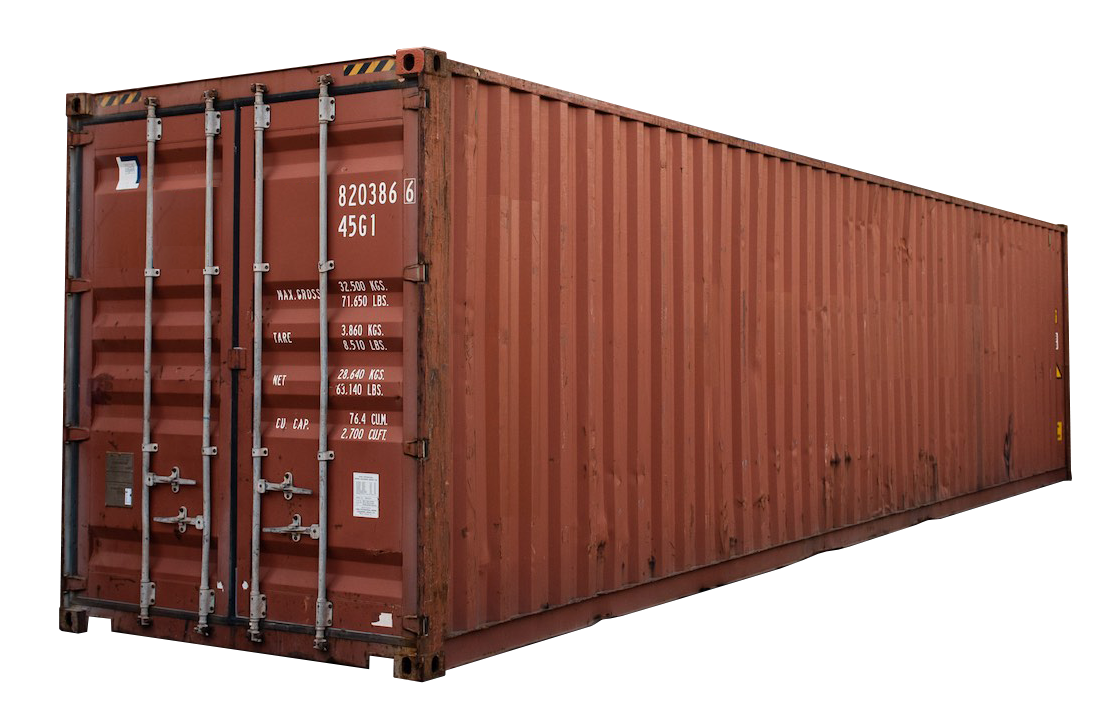The evolution of Shipping Containers for Sale and their impact in commerce
Wiki Article
Every little thing You Required to Learn About Shipping Containers and Their Practical Applications
Shipping containers have actually advanced from simple devices for transport to flexible frameworks with numerous sensible applications. Their durable design and conventional sizing make them excellent for an array of usages beyond shipping. From ingenious housing remedies to lasting farming, their adaptability is significant. The possibilities do not end there. Discovering their different features reveals unusual understandings right into modern-day challenges and creative solutions. What various other roles could these containers play in today's world?The Design and Framework of Shipping Containers

Internally, containers are made to make best use of space, commonly featuring wood or steel floor covering that can support significant weight. Air flow systems may be incorporated to protect against wetness accumulation, which is crucial for delicate cargo. Additionally, reinforced corners enable very easy handling by forklifts and cranes, promoting smooth loading and unloading. This thoughtful layout and framework add to the containers' convenience across numerous shipping and storage applications.
Advantages of Using Shipping Containers
While many transportation techniques have their advantages, the usage of delivery containers sticks out as a result of their unparalleled adaptability and performance. Shipping containers provide a standard dimension, making them very easy to carry and pile throughout various modes of transport, including trains, ships, and vehicles. This standardization decreases loading and discharging times, consequently raising total productivity.Shipping containers are built from long lasting products, offering durable defense for products during transit. They are weather-resistant and safe, minimizing the risk of damages from ecological aspects or theft. Additionally, the modular design of delivery containers permits for simple customization, enabling services to adjust them for numerous functions, such as storage or mobile workplaces.
Their mobility and cost-effectiveness make shipping containers an attractive option for companies looking to improve logistics and supply chain procedures. These advantages contribute to the expanding popularity of shipping containers in various sectors.
Imaginative Real Estate Solutions With Shipping Containers
Innovative housing remedies have become an exciting application of delivery containers, leveraging their integral staminas for residential usage. These versatile frameworks use a sustainable alternative to traditional building products, commonly at a portion of the price. Architects and designers have actually transformed containers into elegant, practical homes, satisfying diverse way of lives and choices.

In addition, delivering containers are eco pleasant, promoting recycling and decreasing waste. Several projects focus on energy effectiveness, incorporating photovoltaic panels and green roofing systems. As urbanization rises, these cutting-edge real estate solutions offer a functional reaction to housing lacks while promoting a distinct architectural aesthetic.
Shipping Containers in Retail and Pop-Up Shops
A growing number of merchants are transforming to shipping containers as a dynamic remedy for pop-up shops and retail rooms. These functional frameworks use a cost-efficient choice to typical shops, allowing businesses to develop distinct, appealing settings that draw in clients. Their modular style makes it possible for easy transport and setup, making them excellent for short-lived or seasonal retail locations.Merchants can tailor delivery containers to mirror their brand identification, changing them right into aesthetically appealing stores that stick out in jampacked marketplaces. The compact nature of containers additionally urges efficient use space, enabling imaginative formats that enhance consumer circulation and engagement. Shipping containers can be positioned in non-traditional locations, such as metropolitan parks or vacant lots, raising accessibility and foot website traffic.

As the retail landscape evolves, shipping containers offer a ingenious and adaptable remedy that fulfills the needs of modern-day consumers while enhancing the shopping experience.
Sustainable Farming Practices Using Shipping Containers
Lasting farming methods increasingly integrate shipping containers as innovative remedies for farming - shipping container storage. These container farms use hydroponics to take full advantage of area and resource efficiency, using an economical method to food production. By changing delivery containers into agricultural hubs, farmers can deal with food safety and security and ecological problems at the same timeContainer Farming Benefits
While standard agriculture faces obstacles such as land shortage and climate adjustment, container farming presents a sensible option that optimizes area and resources. This cutting-edge approach permits year-round plant manufacturing in regulated atmospheres, minimizing reliance on weather. Container farms utilize less water than conventional farming, advertising sustainability and conservation. They can be established in urban areas, bringing fresh produce closer to customers and decreasing transport emissions. Additionally, the modular nature of delivery containers makes it possible for scalability, allowing farmers to adjust operations based on need. Container farming also lessens pesticide use by developing an enclosed ecosystem, eventually boosting food safety. As city populaces expand, container farming arises as a functional option to meet the boosting need for regional, lasting food sources.Hydroponics in Containers
Hydroponics, which enables plants to grow without soil by utilizing nutrient-rich water, thrives within the confines of delivery containers, making it an ideal approach for metropolitan farming. These containers create a controlled atmosphere that optimizes temperature, humidity, and light, making it possible for year-round farming. With restricted room in urban areas, shipping containers provide a scalable remedy for expanding fresh fruit and vegetables. Hydroponic systems within containers can include different strategies, such as nutrient film method (NFT) and deep water society (DWC), which maximize return while decreasing water usage. This innovative strategy not just improves food safety and security but likewise lowers the carbon footprint connected with conventional farming techniques. Subsequently, hydroponics in containers represents a forward-thinking service for lasting city food production.Cost-Effective Agriculture Solutions
As food production encounters enhancing difficulties due to environment change and urbanization, delivering containers become a cost-effective remedy for farming. These functional frameworks can be repurposed for various sustainable farming methods, such as hydroponics and vertical farming. By making use of regulated environments within containers, farmers can optimize growth cycles and decrease resource usage, consisting of water and plant foods. Additionally, shipping containers can be purposefully placed in metropolitan locations, minimizing transport prices and boosting accessibility to fresh produce. Their modular nature enables for scalability, enabling farmers to broaden procedures as need grows. Additionally, repurposing containers contributes to lose decrease, lining up with green agricultural campaigns. On the whole, delivering containers existing innovative opportunities for effective and lasting food manufacturing.Emergency Situation and Disaster Relief Applications of Shipping Containers

Organizations often utilize shipping containers to develop mobile centers or area hospitals, ensuring that medical treatment reaches those in requirement. In addition, they can be changed into command centers for collaborating rescue procedures, thus improving business effectiveness throughout dilemmas.
Additionally, containers can be changed to keep necessary goods such as apparel, food, and water, safeguarding materials till they are distributed. Their wheelchair enables them to be quickly transferred to numerous areas, making sure that assistance shows up where it is most urgently required. On the whole, delivery containers play a critical function in boosting the efficiency of calamity alleviation initiatives worldwide.
Often Asked Inquiries
How Are Shipping Containers Transported From One Area to One More?
Shipping containers are moved by means of trucks, trains, and linked here ships, using cranes for filling and dumping. This multi-modal transport system ensures reliable activity throughout land and sea, attaching global supply chains and helping with global profession.What Is the Typical Life Expectancy of a Shipping Container?
The typical life-span of a delivery container commonly varies from 10 to 25 years, relying on upkeep, usage, and environmental factors. Proper care can prolong their functionality, while neglect may cause wear and tear and damages.Can Shipping Containers Be Customized for Various Usages?
Yes, shipping containers can be modified for different uses. They work as homes, offices, pop-up why not look here shops, and storage space devices. Their convenience enables for imaginative adaptations, making them ideal for a variety of applications.Are Shipping Containers Eco-friendly?
Shipping containers can be ecologically pleasant, as they advertise repurposing and recycling. Their resilience minimizes waste, while their use in alternate real estate and companies reduces the demand for brand-new materials, adding to sustainable methods.How Do I Choose the Right Size Shipping Container?
To pick the right dimension shipping container, one must analyze storage demands, think about the intended use, and examine room availability - shipping container storage. Common dimensions include 40-foot and 20-foot containers, each serving different storage and transportation requirements successfully
Innovative housing options have actually arised as an exciting application of shipping containers, leveraging their intrinsic strengths for domestic usage. The flexibility of delivery containers allows for innovative designs, from single-unit homes to complicated multi-container setups. Sustainable farming methods progressively incorporate delivery containers as ingenious remedies for farming. Furthermore, the modular nature of shipping containers allows scalability, permitting farmers to change operations based on demand. Hydroponics, which allows plants to expand without soil by using nutrient-rich water, thrives within the confines of delivery containers, making have a peek at this site it an ideal technique for metropolitan agriculture.
Report this wiki page